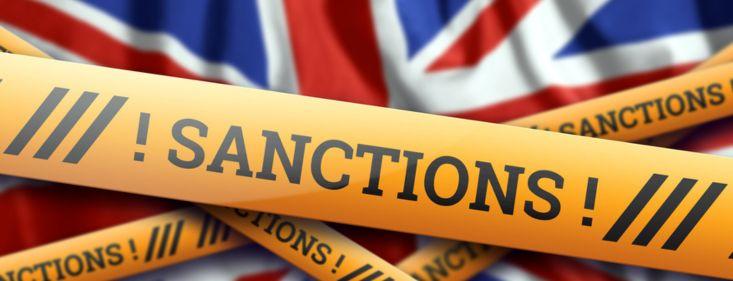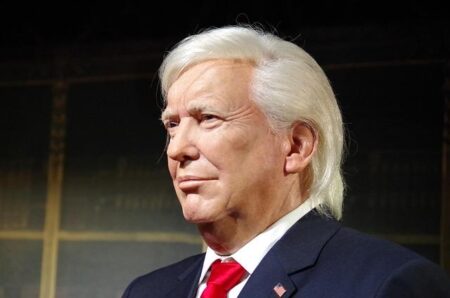The United Kingdom, France, and Germany have announced their readiness to reimpose sanctions on Iran in response to the country’s ongoing nuclear programme, signaling renewed tensions over Tehran’s compliance with international agreements. The move comes amid escalating concerns in Europe about Iran’s uranium enrichment activities, which Brussels and its allies fear could accelerate the development of nuclear weapons. This development marks a significant step in the diplomatic standoff, as Western powers weigh efforts to curb Iran’s nuclear ambitions against the backdrop of stalled negotiations.
UK France and Germany poised to reinstate sanctions amid escalating concerns over Iran’s nuclear advancements
The UK, France, and Germany are preparing to reinstate comprehensive sanctions targeting Iran’s nuclear programme amid heightened international apprehension over Tehran’s recent developments. This move follows escalating concerns that Iran is advancing its nuclear capabilities beyond the limits set by previous agreements, potentially destabilizing regional security. The three countries emphasize that renewed restrictions will focus on critical sectors such as energy, finance, and technology exports that could support Iran’s nuclear ambitions.
Key elements of the proposed sanctions include:
- Ban on sensitive nuclear-related technology transfers to Iran.
- Asset freezes on individuals and entities linked to the nuclear programme.
- Restrictions on international banking transactions facilitating nuclear developments.
The joint statement from the trio stresses that these steps aim to pressure Iran into resuming constructive dialogue while preserving opportunities for diplomatic solutions. Below is an outline of the main sectors targeted by the sanctions:
| Sector | Sanction Type | Impact |
|---|---|---|
| Energy | Export restrictions | Limits on nuclear fuel imports |
| Finance | Transaction bans | Preventive freezes on funds |
| Technology | Equipment embargo | Blockade on dual-use goods |
Analyzing the potential impact of renewed sanctions on Iran’s economy and regional stability
Renewed sanctions targeting Iran’s nuclear activities threaten to exacerbate the pressures on a fragile economy already struggling with inflation, currency devaluation, and unemployment. Key sectors such as oil exports, banking, and manufacturing are expected to face intensified restrictions, which could sharply curtail Iran’s revenue streams and foreign investment prospects. Small and medium enterprises might bear the brunt as access to international markets tightens, potentially deepening economic hardship for ordinary Iranians. Additionally, the ripple effects on the energy market and global supply chains could translate into broader economic instability both regionally and beyond.
On the geopolitical front, these sanctions risk unsettling regional stability by heightening tensions between Iran and Western-aligned countries. Tehran may respond with increased assertiveness in its proxy engagements across the Middle East, challenging diplomatic efforts toward de-escalation. The following table outlines primary factors influencing regional dynamics as a result of sanctions:
| Factor | Potential Impact |
|---|---|
| Militant Proxy Activities | Escalation of conflicts in Syria, Yemen, Iraq |
| Diplomatic Relations | Strained negotiations with EU and U.S. |
| Energy Supply | Volatility in oil prices affecting global markets |
| Regional Alliances | Realignment of Middle Eastern power blocs |
- Economic isolation could undermine Iran’s ability to comply with international agreements.
- Heightened uncertainties may encourage arms build-up and militarization in neighboring countries.
- Humanitarian concerns due to reduced access to essential goods and medical supplies.
Recommendations for diplomatic engagement to balance pressure with dialogue in addressing nuclear proliferation
To effectively navigate the delicate issue of Iran’s nuclear ambitions, it is essential for the UK, France, and Germany to adopt a dual-track approach that prioritizes sustained dialogue alongside calibrated sanctions. Engaging Iran through consistent diplomatic channels serves to reduce misunderstandings and opens pathways for transparent communication, which is critical in preventing escalations. This engagement must be complemented by a clear framework of consequences designed to deter non-compliance while allowing room for Iran to demonstrate constructive intent.
Key elements of this strategy should include:
- Regular multilateral talks that bring together stakeholders under neutral auspices to maintain momentum in negotiations.
- Targeted sanctions that focus on critical sectors without undermining humanitarian considerations or civilian populations.
- Confidence-building measures such as verified transparency checkpoints and joint inspections to ensure compliance and mutual trust.
| Diplomatic Tools | Purpose |
|---|---|
| Multilateral Summits | Promote broad-based consensus and shared commitment |
| Sanctions Calibration | Apply pressure while minimizing humanitarian impact |
| Confidence-Building Initiatives | Enhance transparency and verification protocols |
In Retrospect
As tensions surrounding Iran’s nuclear programme continue to escalate, the decision by the UK, France, and Germany to prepare the reimposition of sanctions signals a firm stance from key European powers. This move underscores ongoing concerns about Iran’s compliance with international agreements and highlights the fragile state of diplomatic efforts. Developments in the coming weeks will be closely monitored by the global community, as stakeholders seek a resolution that balances pressure with dialogue to prevent further destabilization in the region.




